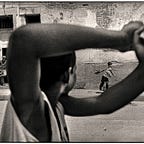According to the Black Panther Soundtrack, Africa is indeed a country
The Black Panther Soundtrack is a missed opportunity to represent African artists. The soundtrack, curated by Kendrick Lamar, fails in its obligation to showcase the musical talents of African artists. Although Lamar seems a perfect fit, due to his substantive discography and videography, he relies too heavily on old western tropes.
What’s most striking about the album is how it centers around hip hop and rnb. That may seem counter intuitive — given that Lamar is a rapper — but considering his experimentation with jazz in the past, it’s a reasonable expectation for him to have incorporated more afrocentric sounds. That, however, isn’t the case as the music seems out of step with the premise of the film. There is some variety in songs like Jorja Smith’s I Am and the groovy The Ways but the project relies on run of the mill aesthetics. This is largely due to who graces the soundtrack in between K Dot’s incessant, almost claustrophobic involvement. It features Vince Staples, The Weeknd, Khalid, Swae Lee, Travis Scott, 2 Chainz, Andersoon.Paak, Future as well as Lamar’s stablemates Jay Rock, Sza Schoolboy Q and Ab Soul.
That’s a mouthful of artists who’ve already broken into the American mainstream; in stark contrast to the four African artists enlisted on the album. The fact that all four of these artists are South African — where hip hop has experienced a renaissance over the past couple of years — was only slightly less surprising than Future’s verse on King’s Dead getting the green light. 3 out of 4 of these artists have an intimate knowledge of hip hop and didn’t divert from a seemingly pre-ordained aural inclination. Together with Emtee: Sjava and Saudi helped mould Ambitiouz Entertainment’s African Trap sound; fusing trap, afrosoul, digital maskandi and mbaqanga. Yugen Blakrok, meanwhile, has been dominating the underground as part of Iapetus Records, a label known for its appreciation of bars and lyrics.
Besides Yugen’s gritty, technically brilliant verse on Opps, neither of the featured African artists force the sonic direction of the project to change. A comfortable listen is ensured for western audiences with Saudi slotting in perfectly as an African Trap practitioner on X, a record whose inclusion also baffles. I mean… imagine trapping in Wakanda! Sjava effortlessly croons Zulu lyrics over a bass-heavy, midtempo beat and delivers one of only two verses conveyed entirely in an indigenous African language. Mampintsha has the other Zulu verse on Redemption, a song that sees Gqom-sensation Babes Wodumo robbed of her identity. Alongside Anderson.Paak she renders some catchy, if uninspiring, vocals with no trace of the high energy refrains we’re accustomed to from her. The features suffice, although isiXhosa doesn’t take center stage on a single song. Not even the ‘official’ language of Wakanda is on display, let alone a range of other African languages, rhythms, melodies and beat breaks that could have added some much needed texture to this album.
There’s a genuine sense that showcasing African artists from other regions should have been a more pressing priority. The lack of representation of West African artists is particularly baffling. The crossover appeal of acts like Wizkid, Davido and Mr Eazi is reason enough to include them on the album. The sheer support these artists get overseas also makes great commercial sense. It seems though, once again, the idiosyncrasies that African artists possess are either bent to the preference of the western ear or wholly omitted. Of course this is the predictable result of having an American artist orchestrate the direction and feel of a compilation project of this nature. The popular sounds coming out of the continent may not have leant themselves to the malleability sought by the chief curator. One wonders if the African artists should be the ones doing the adapting for an African-themed project though. Is there any sense of reciprocation in this relationship?
You can’t escape the feeling that the inclusion of these four South African artists was merely a case of ticking boxes. While nodding to the predominantly hip hop beats on the Black Panther album we should ask if one country’s inclusion on an African-themed album adequately satiates our desire for representation. With this state of affairs it’s worth considering whether we can entrust our representation to our African American kin-folk.
The answers to these questions may lie in the movie itself but this was a sonic opportunity for Kendrick Lamar to pay homage. Lamar is sure to further his career and venture into Hollywood off the back of African-inspired art and his insistence on familiarity is structurally significant. His approach is akin to a cultural imperialism — functioning with Africans’ pseudo-consent and participation — that places African Americans as the intermediaries enabling the exploitation of our cultures. The Black Panther album proves that, in a cultural context, Africa’s main value proposition remains as a site of raw materials to source from. What an unfortunate country!
